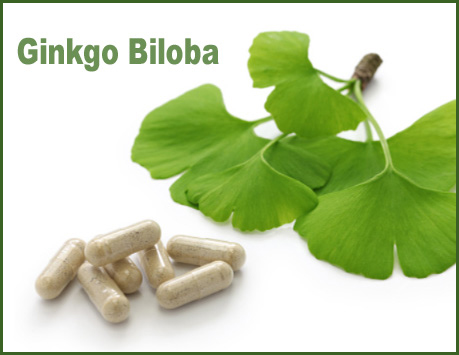Every day millions of people reach for Ginkgo Biloba supplements to boost their energy level and to improve cognitive function. However, according to scientists in Portugal, Ginkgo Biloba also provides untapped antioxidant and cardiovascular benefits.
Ginkgo Biloba originates from the Asian continent and is the oldest living tree species in the world. Ginkgo Biloba trees regularly live for more than a thousand years—making it a “living fossil.”
The name “Ginkgo” derives from an erroneous transcribing of the Japanese name Ginkyo, meaning silver fruit. The name “biloba” refers to the bilobed, or two-lobed, shape of the leaves.
Seeds, fruit and leaves from the tree have been prescribed by Chinese medical practitioners for over 1,000 years.
The first ancient Chinese herbal formulators considered the inner layer of the seeds of Ginkgo Biloba as the active/therapeutic part of the plant. It is still used in Traditional Chinese Medicine to treat certain conditions in the present day; however, today herbal practitioners in both East and West consider the leaves to provide the most benefit.
The transition from seed-dominance to leaf-dominance was gradual, and appears to have started in the early 1500s.
Studies carried out in the past few decades have proved the transition correct, with measurements showing the majority of Ginkgo Biloba’s bioactive compounds to be present in the leaves.
Today both liquid and powder formulas are made utilizing extracts from the leaves. Products are available in both pharmaceutical and herbal spheres. According to the 2021 Herb Market Report, Ginkgo placed among the top 20 herbal supplements. In the past two years near-record sales have been driven by pandemic-related wellness concerns.
Though Ginkgo Biloba is known by most consumers for its energy and brain benefits, it has been used clinically for the prevention and treatment of various conditions ranging from hypertension and cerebrovascular disease to Raynaud’s phenomenon and neurogenerative diseases.
Unfortunately, research on these “other” benefits is not as plentiful—something that the Portugese researchers hope to change.
Noting that “the evidence of the beneficial cardiovascular effects of Ginkgo Biloba in healthy subjects has been overlooked,” researchers from the University of Lisbon have presented a summary of scientific findings.
Their research was published in the journal Biology.
The study, which is itself not a clinical trial, carried out extensive review of the available research on Ginkgo Biloba in order to encourage follow-up research in clinical settings. In all, the researchers provide 142 references on studies going back to 1996.
Ginkgo History
• According to WebMD, the first references to Ginkgo Biloba “for asthma and bronchitis” date back 2,600 years.
• The first documentation of cultivating Ginkgo Biloba for prescribed medicinal use dates back about 1,000 years.
• Some Ginkgo Biloba trees today are over 160 feet tall and are more than 2,500 years old.
Learn more about Ginkgo Biloba in our earlier Optimal Health Insider article here.
Reports such as this are perhaps more noteworthy in Europe, where herbal extracts are widely incorporated with pharmaceutical drugs. In the U.S., where pharmaceutical corporations heavily influence medical training, pharmacists are less likely to pay attention to extensive research on a traditional herb.
Some of the key findings of the report include:
• Ginkgo Biloba displays a modulatory effect on cardiac function.
• Ginkgo Biloba reduces vascular tension, a benefit researchers attribute to the herb’s ability to promote release of nitric oxide and prostanoids.
• Ginkgo Biloba encourages the process of blood transferring oxygen to body tissue—a process known as perfusion.
• Ginkgo Biloba is considered to be generally safe, with a low frequency of adverse reactions.
With regards to the improving perfusion, the researchers noted that Ginkgo Biloba provided this benefit without significantly affecting blood pressure. Researchers also noted the benefit was observed in different “vascular beds”—ocular, cochlear, cutaneous, cerebral, and coronary.
“Extracts of Ginkgo Biloba are among the most sold supplements worldwide, which justifies the need for a deeper knowledge of its cardiovascular effects, especially in healthy subjects,” the researchers wrote.
“In the future, better controlled clinical studies should be performed in order to identify the target populations who may benefit the most from pharmacotherapeutic interventions involving Ginkgo Biloba.”
The study was published in November 2022, and the is available for download at the open access portal MDPI.
Ginkgo Biloba is part of the proprietary blend in several Optimal Health Systems products, including:
• Opti-GI by Dr. Brimhall
• Optimal B Awake
– – –
Sources: Biology (MDPI.com).


